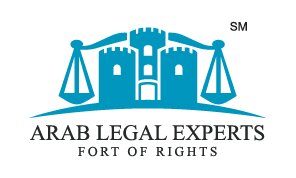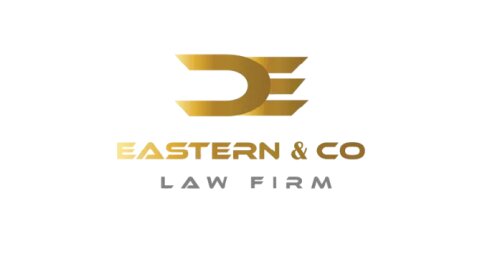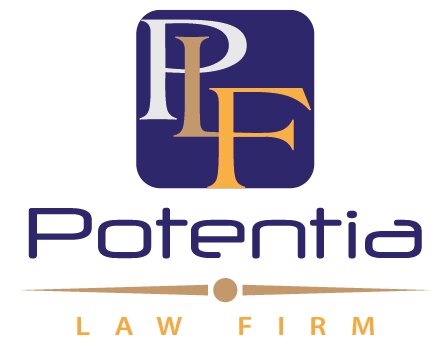Best Sanctions & Export Controls Lawyers in Dokki
Share your needs with us, get contacted by law firms.
Free. Takes 2 min.
List of the best lawyers in Dokki, Egypt
1. About Sanctions & Export Controls Law in Dokki, Egypt
Sanctions and export controls in Egypt operate as a national framework that enforces international sanctions and regulates the trade of controlled goods. In Dokki, as in the rest of Egypt, authorities implement United Nations sanctions and maintain domestic licensing regimes for dual-use and strategic items. Practical impact includes licensing requirements, end-user verifications, and penalties for violations. Local lawyers help clients interpret the rules, prepare compliant programs, and respond to investigations.
Key players in Dokki include the General Organization for Import and Export Control (GOEIC), the Ministry of Trade and Industry, and the Egyptian Customs Authority. These bodies oversee licensing, screening of transactions, and enforcement actions that may involve administrative penalties or criminal charges. A strong complaint or defense strategy depends on accurate screening, record keeping, and timely communications with authorities.
For residents and businesses in Dokki, staying current on changes to export controls is essential, as authorities frequently update licensing lists, screening procedures, and enforcement priorities. Compliance reduces risk of shipment delays, fines, or criminal exposure. Consult a solicitor who specializes in sanctions and export controls to tailor a plan to your circumstances.
Source note: See official government channels for the most current guidance, including the Ministry of Trade and Industry and GOEIC portals. Ministry of Trade and Industry and General Organization for Import and Export Control.
Egypt implements UN Security Council sanctions and domestic export controls through GOEIC licensing and related regulatory regimes.
Additional context can be found in official government resources and international guidance on sanctions compliance. For general international context, consult UN Security Council information on sanctions and their national implementation as a baseline reference.
2. Why You May Need a Lawyer
In Dokki, sanctions and export controls issues can trigger administrative, civil, or criminal exposure. A lawyer with specialized sanctions and export controls experience helps you navigate licensing, screening, and enforcement matters. Below are concrete, real-world scenarios you may face.
- A Dokki-based manufacturer discovers a shipment contains a dual-use item not properly licensed. An attorney can assess whether a license is required, help obtain one, and manage communications with GOEIC.
- Your company in Dokki executes a deal with a foreign distributor and discovers a red flag in the counterparty's ownership or end-user. A solicitor can advise on due diligence, internal controls, and how to respond to sanctions screening findings.
- You receive a request from GOEIC or the Egyptian Customs Authority to provide end-user certificates or end-use assurances. A legal counsel can prepare compliant documentation and coordinate with authorities.
- You suspect a potential violation of export controls or sanctions. An advocate can conduct a risk assessment, preserve evidence, and guide you through audit or investigation processes.
- Your Dokki business is considering a cross-border transaction involving restricted or listed goods. A lawyer can design a compliance program, policy framework, and staff training plan to minimize risk.
- Your company faces a potential criminal or administrative sanction for export control breaches. An attorney can advise on defense strategy, rights, and negotiations with prosecutors or regulators.
In all scenarios, working with a lawyer who understands local business practices in Cairo and Dokki, as well as international sanctions regimes, improves your odds of a favorable outcome. A specialist can also help you implement preventive measures to avoid issues in the future.
Source note: For planning and due diligence, consult official sources and a qualified solicitor who can tailor advice to your specific facts. See the government links cited in Section 1 for authoritative frameworks.
3. Local Laws Overview
The sanctions and export controls framework in Egypt rests on a blend of regulations administered by GOEIC, the Ministry of Trade and Industry, and customs authorities. In Dokki, practitioners focus on identifying the applicable licensing requirements, screening obligations, and compliance programs that align with national policy and international obligations.
Export and Import Control Regulations (GOEIC) govern licensing for controlled goods, dual-use items, and restricted technology. These regulations shape how a Dokki business classifies items, screens buyers, and secures necessary licenses before shipping goods. The GOEIC framework has undergone updates in recent years to strengthen end-use verification and license processing times.
UN Security Council Sanctions Implementation refers to the way Egypt translates UN sanctions into national action. In practice, this means screening counterparties, freezing listed persons or entities, and enforcing related prohibitions through administrative measures and, when applicable, criminal provisions. Local counsel should ensure that business practices reflect the current UNSC lists and national enforcement policies.
Anti-Money Laundering and Counter-Terrorist Financing Provisions intersect with sanctions enforcement because financial institutions and exporters must avoid facilitating illicit activity. These rules influence client screening, payment routing, and record-keeping requirements for cross-border transactions. A Dokki-based business should align its financial controls with national AML/CFT standards to support sanctions compliance.
Recent changes and trends emphasize stronger licensing processes, more robust end-user verification, and closer coordination between GOEIC and customs authorities. Businesses in Dokki should regularly review their compliance programs and seek legal guidance when expanding export activities or engaging with new international partners.
Sources for local laws and regulatory context include official government channels. For authoritative information, see:
- Ministry of Trade and Industry - policy directions, licensing regimes, and regulatory updates.
- Egyptian Customs Authority - border controls and export-import procedures.
- General Organization for Import and Export Control - licensing and compliance for controlled goods.
4. Frequently Asked Questions
What is the role of GOEIC in export controls in Egypt?
GOEIC issues licenses for controlled goods and enforces end-use verifications. They coordinate with customs to ensure compliant export flows from Dokki and elsewhere.
How do I know if my product is controlled?
Classification depends on destination, item type, and end-use. A solicitor can review product specs, end-use statements, and licensing lists to confirm control status.
What is an end-use certificate and why do I need it?
An end-use certificate confirms the buyer will use goods as stated and not for prohibited purposes. It helps prevent license violations and shipment delays.
How much does export license processing typically cost?
License fees vary by item type and destination. A local attorney can provide a precise estimate after reviewing your goods and market.
When should I engage a sanctions lawyer?
Start early if you plan cross-border sales, suspect potential violations, or face licensing inquiries from GOEIC or customs authorities.
Where can I find the latest sanctions lists affecting Egypt?
National authorities publish national lists and updates. Compare Egypt's end-use rules with UNSC or other international lists for alignment.
Do I need a local lawyer or can I hire an international advisor?
Local lawyers understand Dokki and Cairo procedures, while international advisors provide broad guidance. A combined approach often works best.
Is there a difference between an attorney and an advocate in Egypt?
Egyptian legal professionals are generally referred to as advocates. A solicitor-style gateway is common in other jurisdictions, but local practice uses advocate qualifications.
How long does it take to obtain an export license in Egypt?
Processing times vary by item and complexity. Simple items may take weeks, while complex dual-use licenses can take longer depending on GOEIC review.
What should I do if my shipment is detained at the border?
Contact a sanctions attorney immediately to assess licensing issues, prepare required documents, and coordinate with GOEIC and customs for release.
How can I build a compliant export program for my Dokki business?
Develop an internal policy, conduct risk assessments, train staff, perform ongoing screening, and implement documented procedures for licensing and end-use checks.
5. Additional Resources
Access to official guidance and regulatory information is essential for accurate compliance. The following organizations provide authoritative, government or official guidance relevant to sanctions and export controls in Egypt.
- Ministry of Trade and Industry (Egypt) - policy direction, licensing requirements, and regulatory updates for exporters and importers. https://www.mti.gov.eg
- General Organization for Import and Export Control (GOEIC) - licensing and enforcement framework for controlled goods, dual-use items, and end-use verification. https://www.goeic.gov.eg
- Egyptian Customs Authority - border control, declarations, and export-import procedures. https://www.customs.gov.eg
6. Next Steps
- Identify your Sanctions & Export Controls exposure by listing all products, destinations, and counterparties. Do this within 7 days of starting export planning.
- Engage a Dokki-based solicitor with sanctions and export controls experience to review your product classification and licensing needs. Schedule an initial consult within 2 weeks.
- Prepare a documentation checklist including product specs, end-use declarations, and counterparty information for licensing inquiries. Assemble this within 2 weeks of the consult.
- Submit required license applications through GOEIC and coordinate with the Egyptian Customs Authority if your shipment involves border controls. Allow 4-8 weeks for typical processing, depending on complexity.
- Implement a compliance program tailored to your business, including screening procedures, record-keeping, and staff training. Roll out the program within 1-2 months after licensing decisions.
- Monitor and update your sanctions intelligence regularly by reviewing official bulletins and license decisions. Schedule quarterly reviews with your solicitor.
- If a shipment is detained or you receive a request from authorities, contact your sanctions attorney immediately to coordinate responses and potential resolutions. Do not delay.
Lawzana helps you find the best lawyers and law firms in Dokki through a curated and pre-screened list of qualified legal professionals. Our platform offers rankings and detailed profiles of attorneys and law firms, allowing you to compare based on practice areas, including Sanctions & Export Controls, experience, and client feedback.
Each profile includes a description of the firm's areas of practice, client reviews, team members and partners, year of establishment, spoken languages, office locations, contact information, social media presence, and any published articles or resources. Most firms on our platform speak English and are experienced in both local and international legal matters.
Get a quote from top-rated law firms in Dokki, Egypt — quickly, securely, and without unnecessary hassle.
Disclaimer:
The information provided on this page is for general informational purposes only and does not constitute legal advice. While we strive to ensure the accuracy and relevance of the content, legal information may change over time, and interpretations of the law can vary. You should always consult with a qualified legal professional for advice specific to your situation.
We disclaim all liability for actions taken or not taken based on the content of this page. If you believe any information is incorrect or outdated, please contact us, and we will review and update it where appropriate.











